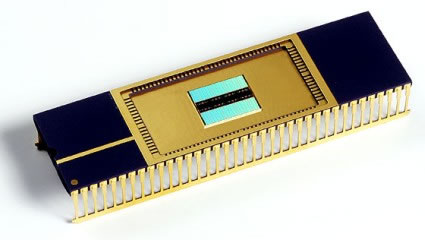Update (5/11): We received direct word from Harry Yoon, Samsung's Senior Technical Marketing Manager, which reads as follows: "Samsung is currently sampling a 60-nanometer class 512Mb PRAM. Initial production will be determined in accordance with customer demand expected in the second half of 2009."
This accentuates the blog post provided by ecdfan in the comments below in that the present chips are 512Mb (bit) and not 512MB (byte), and should not be expected this coming June. However, the blog's insinuation that there is a "lack of customer demand" remains to be seen, and obviously Samsung feels otherwise if production plans remain on the table.
Update: We've been unable to confirm with Samsung if it's indeed true they are moving into production of PRAM in the coming months, so some of the facts described below could be inaccurate. The last time Samsung issued a press release related to PRAM technology was in 2006 when they announced that by 2008 they would have samples ready to offer a competitive choice over NOR flash. We are awaiting their response to our email.
Original story: Samsung Semiconductor recently announced its plan to mass produce 512MB PRAM (Phase-change memory) chips come June. The long awaited PRAM chips are welcome competitors on the market which hope to successfully trump both NAND and NOR flash memory.

PRAM utilizes the interesting characteristic of chalcogenide glass, which can change states between crystalline and amorphous with the introduction of heat. Through this behavior, it can deliver significant performance gains over conventional flash memory. Not only can the memory element be switched at a more rapid rate, but it is able to modify the state of individual bits without having to erase previously stored data.
Samsung presently theorizes that the next generation memory is up to 30 times the speed of traditional flash memory. As the cherry on top, its reliability is also said to be far superior, boasting up to 10 times the lifespan. Pricing information is not yet available, as is any word on what devices, if any, will adopt the memory hot off the press. Given the nature of the technology, it wouldn't be surprising to see its introduction in mobile handset devices.